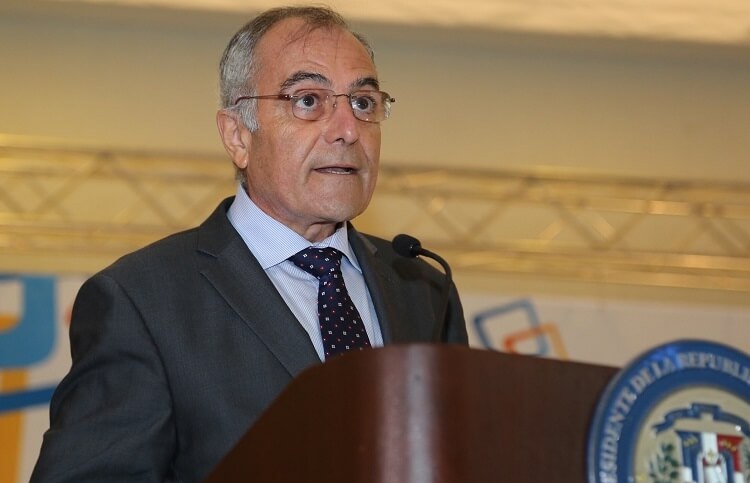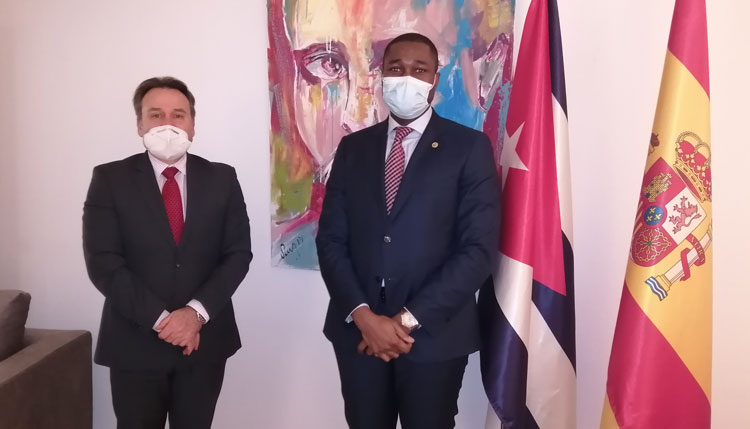Luis Ayllón
The EU’s High Representative for the Common Foreign and Security Policy, Josep Borrell, will keep the current EU ambassador to Cuba, the Spaniard Alberto Navarro, in his post, according to a letter he has sent to the MEPs who called for his dismissal for signing a collective letter addressed to the President of the United States, Joe Biden, demanding an end to the embargo on the island.
In the letter, to which The Diplomat had access, Borrell gives an account of the meeting he held with Alberto Navarro, whom he summoned to Brussels after the MEPs’ complaints, and indicates that the EU delegate has recognised that he made two mistakes in signing the letter and in making subsequent statements in which he said that he did not consider Cuba to be a dictatorship.
However, Borrell does not indicate that he is going to remove the diplomat from his post, which Navarro will leave in a few months’ time, in September, after four years in the post. In fact, as a member of the Spanish diplomatic career, he participates in the competition for the distribution of posts abroad, known in Spanish diplomatic jargon as “el Bombo”.
The request for her dismissal was initially made on 24 February by some fifteen MEPs from the Group of the European People’s Party – including some Spaniards – and from other groups such as Renew and ECR, who considered that Alberto Navarro had violated the neutrality required of him by signing a petition addressed to Biden, together with several Cuban artists and communist intellectuals, calling for an end to the embargo on Cuba and the initiation of a political rapprochement.
Days later, 37 other Popular, Liberal and Conservative MEPs, many of them Spanish, joined the calls for his dismissal when the EU delegate declared to the independent media Cubanet that he did not consider Cuba to be a dictatorship.
The MEPs’ demands forced Josep Borrell to summon the ambassador to Brussels to ask for explanations. After meeting with him yesterday, the High Representative sent a long letter to the MEPs who had called for Navarro’s dismissal.
In the letter, Borrell defends “the approach of the EU-Cuba Political Dialogue and Cooperation Agreement, and the policy of critical engagement with Cuba that it embodies”, as opposed to the demanding Common Position established in 1996, which he believes did not achieve the expected results.
And, as for the professional conduct of the European ambassador, he points out that Navarro “has acknowledged that it is not within the scope of his functions as a diplomatic representative of the European Union” to subscribe to an initiative such as the aforementioned letter to Biden, “even less so if it is addressed to the leader of a third country”.
However, Borrell points out that, “without this being an excuse for an ill-advised decision”, the main message of the letter is in line with the EU’s long-standing position of calling for the lifting of the US embargo against Cuba.
It adds that in his conversation with the ambassador, the latter categorically denied having asked or encouraged any diplomatic representative of the EU member states accredited in Cuba to join in supporting the initiative.
Likewise, he rejects the accusations that the ambassador refused to receive the president of the Damas de Blanco, Berta Soler, indicating that she has been received on several occasions in the European delegation and held a virtual meeting on 6 October 2020, in the context of preparations for the third formal EU-Cuba dialogue on human rights.
Borrell also acknowledged that an official visit by the European Parliament to Cuba had not been possible and regretted that the Cuban Government had only admitted visits by individual members since 2017. He adds that both the EU Delegation and the European External Action Service continue to put pressure on the Cuban authorities to allow such an official visit.
Regarding the statements by the ambassador in Havana on the nature of the Cuban political system, it indicates that Alberto Navarro “accepts that he was wrong” in his comments and, in particular, “deeply regrets his response to the direct question as to whether Cuba can be considered a dictatorship”.
It is clear,” says the High Representative, “that Cuba is a one-party regime, where political pluralism and fundamental freedoms are not respected. With this in mind, we will continue our dialogue with the Cuban authorities to encourage their path towards sustainable development, democracy and human rights”.
Following this, Borrell says that representing the EU abroad is a high responsibility and, he says, “we must expect and ask the best from our diplomats”. But he adds: “We must also be sympathetic to the difficult circumstances in which many of them find themselves on a daily basis and act proportionately and fairly when they make mistakes, taking into account, among other things, the real harm that may have been caused.
There can be no doubt,” he concludes, “that, as noted in some of his letters, Ambassador Navarro has committed two major failures of communication/public judgement in recent weeks. This is regrettable and he has been summoned to Brussels to explain himself. Ambassador Navarro has admitted his mistakes and apologised profusely”.







